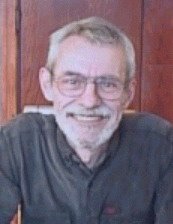
NEW YORK - On Sept. 11, Jacob Sundberg of San Antonio has pledged to make eye contact and smile at everyone he meets. Kaitlin Ulrich will bring goody baskets to the police and fire departments in and around Philadelphia. And 100 volunteers from New York – 9/11 firefighters and family members among them – are going to Groesbeck, Texas, to rebuild a house destroyed by a tornado last December.
This is a minute sampling of the hundreds of thousands of people who have pledged to memorialize those killed on 9/11 by doing something good for others.
The heroic acts of all those killed trying to save others that September morning has spawned a growing grass-roots movement. The goal is to ensure that future generations remember not just the horror of the attacks, but also the extraordinary outpouring of humanity during the days, weeks, and months that followed.
"It was the worst possible day imaginable, and in some ways, a remarkable day, too, in the way in which people responded", says David Paine, cofounder of myGoodDeed.org. "We need to rekindle the way we came together in the spirit of 9/11: It would be almost as much a tragedy to lose that lesson".
Sept. 11 has inspired dozens of philanthropic efforts – from groups dedicated to building memorials to foundations designed to improve education in the Middle East. But myGoodDeed has a more universal goal: to turn 9/11 into a day dedicated to doing good – from small, simple things like Lisa Scheive's pledge to help stranded turtles cross the road in Pompano Beach, Fla., to lifesaving efforts, such as John Feal's decision in New York to donate one of his kidneys to help a seriously ill 9/11 worker.
The idea has been endorsed by members of Congress, and at myGoodDeed's urging, President Bush for the first time this year included a call for volunteering in his annual 9/11 proclamation.
After major disasters, Americans have historically tapped a deep reserve of compassion and reached out to others. But in the months and years that follow, those compassionate and civic urges tend to recede. Studies at Harvard's Saguaro Seminar on Civic Engagement in America found that in as few as five months after 9/11, most Americans had gone back to their daily lives and were not more engaged as they said they'd hoped to be. Part of the goal of turning 9/11 into a national day of service is to remind Americans of the inherent joy of giving and to hopefully spur volunteering and charitable acts throughout the year.
"I don't know of any research that's been done on one day of service, but studies have shown that people who do volunteering in high school are more likely to volunteer throughout their lives", says Thomas Sander, executive director of the Saguaro Seminar.
The idea of turning 9/11 into a day of service, charity, and good deeds came from the family and friends of one man: Glenn Winuk, a volunteer fireman and lawyer who worked a block and a half from the World Trade Center. After he helped evacuate his Broadway law offices, he grabbed a medic's bag and ran toward the smoke pouring from the South Tower. That's where his remains were found after the towers fell. Mr. Paine and Glenn's brother Jay had been friends for years. They decided that turning 9/11 into a day of service was best way to memorialize Glenn.
"It completely reflects the way my brother lived his life, and it also specifically reflects how he died", says Mr. Winuk, myGoodDeed.org cofounder. "He laid his life on the line for other people that day".
In 2002, Paine and Winuk sent e-mails to friends and family and suggested they do a good deed, such as donate a day's pay on 9/11. Then the idea evolved, and they founded myGoodDeed.org. In 2004, 100,000 visited their website and pledged to do a good deed on 9/11. This year, those pledging number more than 250,000.
"A lot of people don't know what to do on 9/11," says Paine. "This hits people in their heart and their soul. It connects with something that's fundamental".
Alexandra Marks The Christian Science Monitor writer
The Christian Science Monitor Marti 11 Septembrie 2007 http://news.yahoo.com/s/csm/20070910/ts_csm/adogood_1





.jpg)


















No comments:
Post a Comment